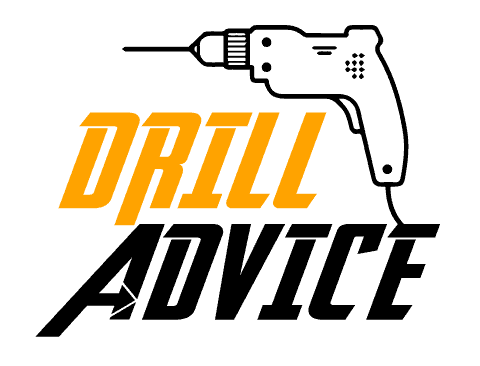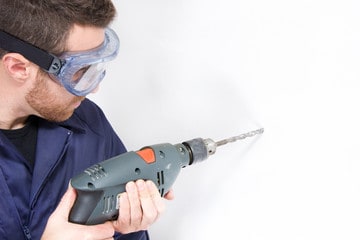When identifying the drill bit, you should pay attention to many factors. Because many drill bits are manufactured according to the specific material properties. There are wood, steel, masonry, tile, and glass drill bits are available. It isn’t easy to categorize each drill bit by its first seen. But I will guide you to identify any drill bit after you refer this.
Normally drill bits can be identified with the material, geometry, and coatings. By geometry, 118° cutting angle for soft materials and 135° for hard materials. Steel, cobalt, carbide, and tungsten are used as drill bit materials, and due to coatings, their color is varied.
Mostly, we drill metals, wood, concrete, bricks, tiles, and glasses. These are with different hardness and physical properties. In order to maximize the drilling efficiency, drill bits are made with specific geometry, coating, and materials. So we are not able to use drill bits by interchanging each material. So let’s see which drill bit is suitable for which material.
How to Identify the Wood Drill Bits?
Normally, wood drill bits are identified with the sharpened cutting edge with a 118-degree cutting angle. The cutting angle is protruding, and lips are periphery as it prevents wandering and act like a chisel. Most wood drill bits are bright finish and with fast spirals.
Wood drilling requires high RPM. So, narrow point angles and sharpened lips can cut the material fast and efficiently. Therefore wood drill bits have narrow point angles and sharp cutting edges. Due to the high flute rate, the drill bit can be fed into the material easily. Because a higher flute rate can remove more cutting material at a higher rate. These 13 types of wood drill bits always help to drill wood more efficiently.
Wood drill bits are bright finished and made with HSS (high-speed steel) or steel. Additional coatings are mostly not applied except in special cases.
More than that, there are so many geometries available. Because wood drilling is more famous than steel, you can see many cutting and drilling tools available for wood drilling. More than twist drill bits, there are spade bits, brad point bits, spoon bits, Forstner bits, center bits, auger bits, and many more drill bits are available for the wood drilling process. When your drill bit is blunt you can sharpen it by using this guide easily.
How to Identify Steel Drill Bits?
Generally, steel drill bits can be identified with the 135-degree point angle and color of the drill bit. Steel drill bits are made with HSS, and it is black in color. Steel drill bits are specially coated with material layers. These layers are equally gold, black, blue, and copper in color.
Conventional steel drill bits are a bright finish. But modern drill bits are made with HSS and applied coatings in order to increase some physical properties such as durability, thermal resistance, wearing resistance, and friction. Mostly used layers are
- Regular (Bright Finish) – Silver color*
- Black Oxide – Black color*
- Titanium Nitride (TiN) – Gold*
- Titanium Carbo Nitride (TiCN) – Copper*
- Titanium Aluminium Nitride (TiAlN) – Blue*
*These colors are not the exact color for the drill bits. Those are very similar to these colors
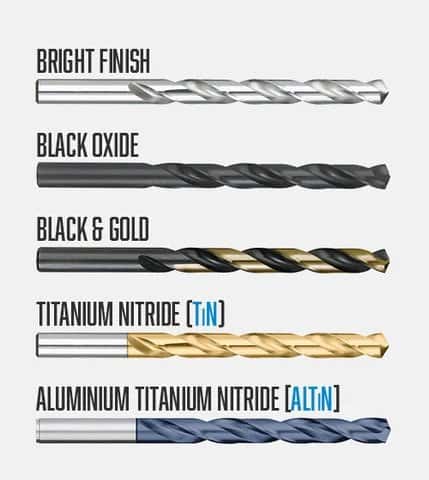
The main difference between the wood drill bit and the steel drill bit is the cutting angle, manufactured material, and outer coatings. Wood drill bits are not outer coated and with less drill bit angle. Deeply you can see there is less flute rate in the steel drill bits.
Some special reasons drill bits are made with more strength materials such as cobalt, tungsten, and carbide.
You can use a black oxide drill bit for drilling soft metals such as aluminum, steel, copper, brass, and low-carbon steel with hardwood.
When I need to drill higher carbon steel, I use a cobalt drill bit successfully. If you have both drill bits you should know what are the differences between black oxide and cobalt drill bits.
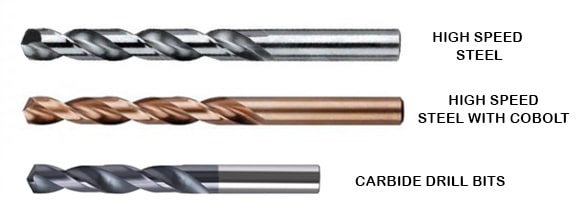
How to Identify Concrete, Brick, Stone Drill Bits
You can identify the concrete drill bit by its drill bit tip and shank. Masonry drill bits do not have sharp cutting edges like wood or stone drill bits. The point angle is round-shaped, and the flutes are deep. Lips cannot be seen clearly, and the shank has rails.
Concrete, brick, and stones are tough materials. When you drill them, you need a hammer drill. Hammer drills are with hammering mechanisms (forward and backward drill bit moving). When the drill bit moves forward and backward, materials will be crushed and moved out using the flutes.
So point head is not sharp and specially designed as it resists the hammering function. The cutting edge is not sharp. But it is not blunt much because the edge is made with carbide or tungsten material. So drill bit will not blunt when the drilling process.
Material debris is produced at a high rate, and deep flutes can transfer them out easily.
Normally, SDS plus SDS max hammer drills require specially designed drill bits with different shanks. That shank is designed with rails. The regular hammer drill bit is moved with the chuck, and the SDS drill bit moves the drill bit only. Hence more powerful hammering function is applied to the material with the free-moving tool. In order to prevent tool movement, it is made with rails.
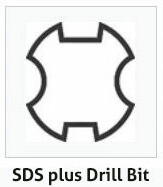
How to Identify Tile Drill Bit?
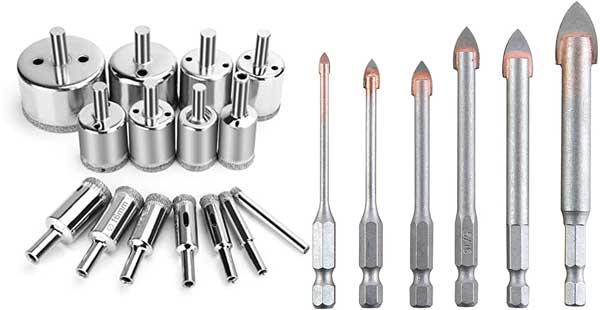
Normally, tile drill bits can be identified by their shape. Tile drill bits are sharp oval shape and have no flutes. The point angle is sharp, and the drill bit is made with tungsten carbide. Only the drill bit tip can be seen rest is the shank. The drill bit tip is about 15mm in length.
Twist drill bits are rarely used for tile drilling, because of the wandering. Normally tile is about 5mm-10mm in thickness and made with porcelain or ceramics. These materials are really hard, brittle, and tough. The surface is really smooth. Considering these factors, tile bits also need more strength and a sharp cutting edge. Hence, it has been designed in a sharp oval shape.
You can drill extra hard material, such as glass, marble, granite, etc, by using this tile bit.
How to Identify Glass Drill Bit?
Generally, you can identify glass drill bits by their shape. Glass drill bits have a sharp point angle and sharp oval-shaped cutting edges. The drill bit tip is about 20mm long, and the drill bit is highly wearing and thermally resistant. Diamond drill bits are also used for glass drilling, and it is a particle immersed drill bit.
Glass is a smooth, hard, and brittle material. When you drill into the glass, you need a sharp point angle in order to wander the drill bit. Hence, glass bits have specific shapes and hardness. These drill bits are highly worn and have a thermal resistance.
Drill bits are made with carbide materials, and some are made as diamond bits. Diamond drill bits and carbide drill bits are really highly efficient and most suitable for the glass drilling process.
